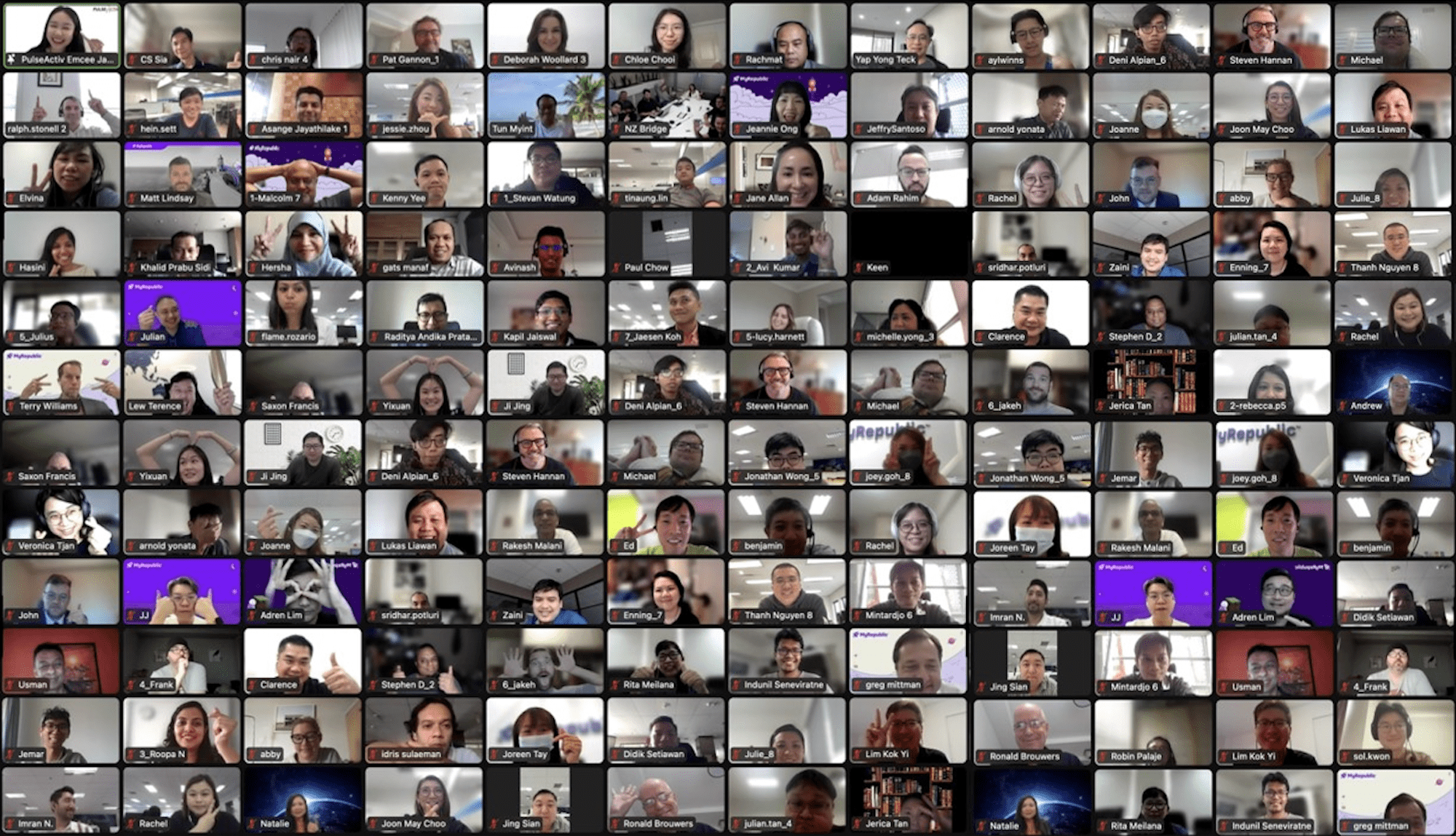The Impact of Virtual Events on Employee Connectivity and Performance
The shift to remote work and virtual interactions has brought significant changes to how teams connect and collaborate. Virtual events have become a crucial tool for maintaining employee connectivity and performance in this new landscape. This article explores the impact of virtual events on team dynamics and productivity and offers strategies for HR professionals to maximize the effectiveness of virtual gatherings.
Reshaping Team Interactions
1. Bridging the Physical Gap
Virtual events effectively bridge the physical gap between remote employees, fostering a sense of belonging and inclusivity. Through video conferencing and online collaboration tools, employees can interact in real time, share experiences, and participate in activities that build camaraderie. This connectivity is essential in combating feelings of isolation and maintaining team cohesion.
2. Enhancing Communication
Virtual events facilitate open communication channels, allowing team members to connect more frequently and effectively. Scheduled virtual meetings, team-building activities, and informal hangouts provide platforms for employees to discuss work-related topics, share ideas, and address challenges. This constant interaction promotes transparency and strengthens relationships within the team.
3. Encouraging Diversity and Inclusion
The virtual environment levels the playing field, enabling employees from diverse backgrounds and locations to participate equally. Virtual events can be designed to accommodate different time zones, making it easier for global teams to engage. This inclusivity fosters a culture of diversity, where every team member’s voice is heard and valued.
Boosting Employee Performance
1. Flexibility and Convenience
Virtual events offer flexibility, allowing employees to join from the comfort of their homes. This convenience reduces stress and increases participation rates, as employees can easily integrate these events into their schedules. As a result, they are more likely to engage actively and contribute positively to team activities.
2. Continuous Learning and Development
Virtual events provide opportunities for continuous learning and professional development. Webinars, workshops, and online training sessions enable employees to acquire new skills and knowledge. These events can be tailored to address specific needs, ensuring that employees stay updated with industry trends and best practices, ultimately enhancing their performance.
3. Performance Recognition
Recognizing and celebrating achievements in a virtual setting boosts employee morale and motivation. Virtual award ceremonies, shout-outs during meetings, and digital badges are effective ways to acknowledge individual and team contributions. Such recognition fosters a positive work environment and encourages employees to strive for excellence.
Strategies for HR to Maximize Virtual Events
1. Plan Engaging Content
HR professionals should focus on creating engaging and relevant content for virtual events. Interactive sessions, polls, and breakout rooms can keep participants involved and attentive. Tailoring content to address the specific needs and interests of the team ensures higher engagement levels.
2. Utilize Technology Effectively
Leveraging the right technology is crucial for the success of virtual events. HR should invest in reliable video conferencing platforms, collaboration tools, and interactive software. Ensuring that all employees have access to and are comfortable using these technologies is essential for seamless participation.
3. Foster a Sense of Community
Building a sense of community in a virtual environment requires intentional efforts. HR can organize regular virtual social events, such as coffee breaks, happy hours, or themed gatherings, to strengthen team bonds. Encouraging employees to share personal stories and experiences during these events can also enhance connections.
4. Provide Support and Resources
Supporting employees in the virtual workspace is vital. HR should offer resources such as mental health support, ergonomic tips, and work-life balance guidance. Providing access to online courses and certifications can also aid in their professional growth and development.
5. Gather Feedback
Continuous improvement is key to the success of virtual events. HR should regularly gather feedback from participants to understand what works well and what needs improvement. Surveys, polls, and open discussions can provide valuable insights to refine future events and ensure they meet employees’ needs.
Conclusion
Virtual events have transformed how teams connect and perform in the remote work era. By bridging physical gaps, enhancing communication, and promoting diversity, virtual events play a pivotal role in maintaining employee connectivity. Moreover, their flexibility and opportunities for continuous learning and performance recognition contribute to improved productivity. HR professionals can maximize the effectiveness of virtual gatherings by planning engaging content, utilizing technology effectively, fostering a sense of community, providing support, and gathering feedback. Embracing these strategies will ensure that virtual events continue to drive positive outcomes for teams and organizations.
To head back to read another article in our blog, click here.

